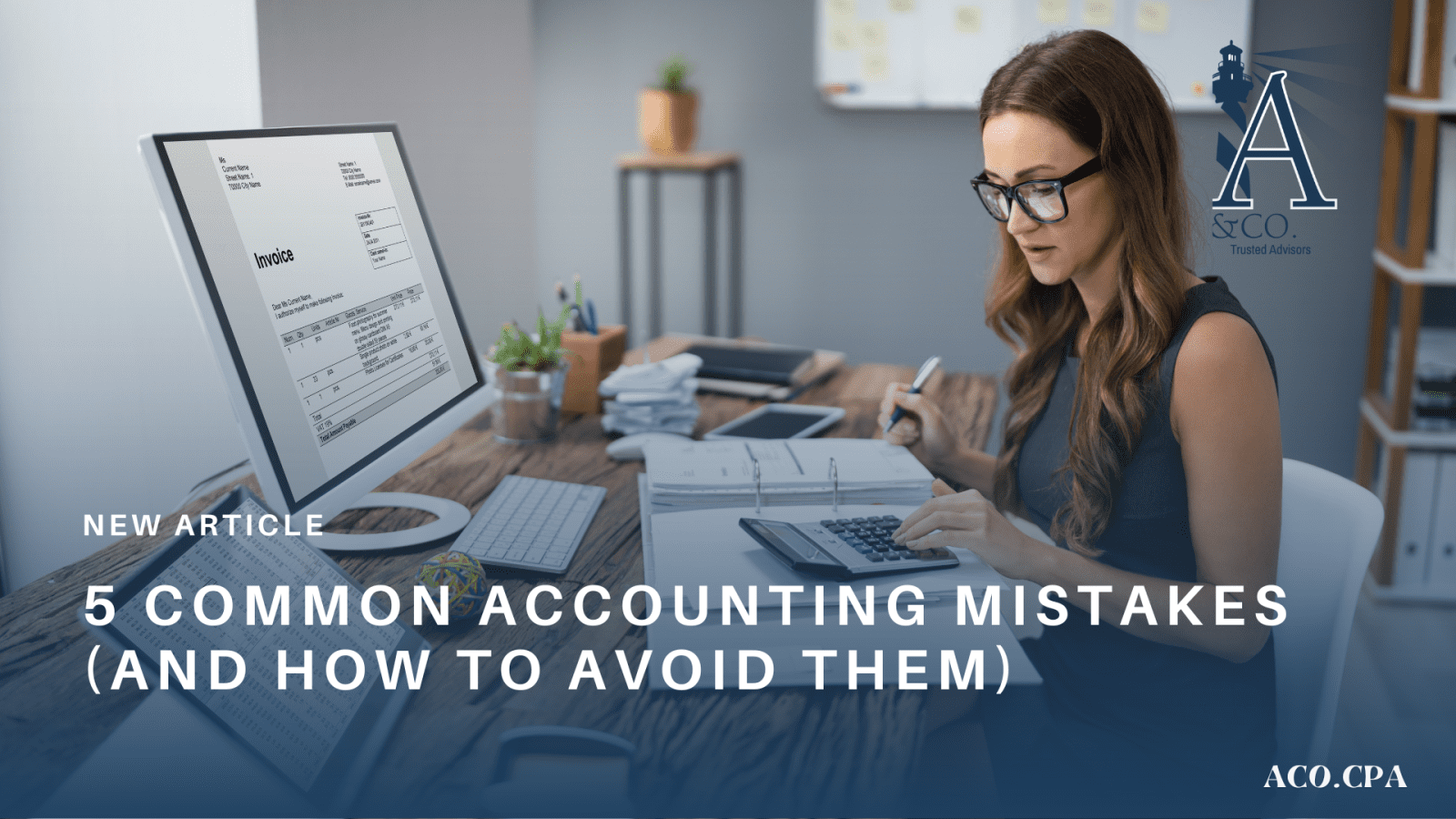As half of the year has passed us, and summer is approaching, now is the time for you as a business owner to look back and reflect on how your business has done thus far. While reviewing your financial health, it’s crucial to ensure your accounting practices are on point. Many small businesses unintentionally make common accounting mistakes that can lead to headaches down the road. Let’s highlight five frequent pitfalls—and more importantly, how you can avoid them.
- Misclassifying Expenses
One of the most common errors is misclassifying expenses—like recording a personal meal as a business expense or lumping marketing costs in with office supplies. These mistakes can distort your financial reports, making it harder to see how your business is truly performing. Regularly review your chart of accounts, and don’t hesitate to consult your accountant when you’re unsure where to categorize an expense. Investing in accounting software that automatically classifies expenses can also reduce errors and save time. - Missing Tax Deductions
There are plenty of legitimate deductions available to small businesses—such as home office expenses, vehicle mileage, or professional development costs. Unfortunately, many owners miss these deductions either because they don’t know about them or haven’t kept good enough records to claim them. Be proactive: keep detailed records of potential deductions throughout the year and work with your accountant to ensure you’re maximizing what you can claim come tax time. - Failing to Reconcile Bank Statements
Reconciling your bank and credit card statements every month is vital. It ensures your books match what’s actually in your bank accounts and helps catch errors or fraudulent charges early. Skipping this step can lead to inaccurate financial statements and potential cash flow problems. Many accounting programs offer automated reconciliation tools—use them to make this a regular part of your monthly routine. - Mixing Personal and Business Finances
Blurring the line between personal and business expenses is a recipe for confusion—and even legal or tax issues. Using separate bank accounts and credit cards for your business isn’t just best practice; it’s essential for clean, accurate recordkeeping and for maintaining limited liability protections if you’re an LLC or corporation. - Not Keeping Backup Documentation
It’s easy to lose track of receipts and invoices when you’re busy running a business, but these documents are critical—especially if you’re audited or need to verify an expense later on. Make it a habit to scan and store your records digitally, using secure cloud-based tools to keep everything organized and accessible.
Final Thoughts
By avoiding these five common mistakes, you’ll not only reduce stress at tax time but also make better decisions throughout the year. If you’re not sure where to start, consider reaching out to a trusted accounting professional who can help you clean up your books and set up better systems for the future.
As always, should you require any assistance on your financial matters, our team at Accavallo and Company CPAs is glad to help.



